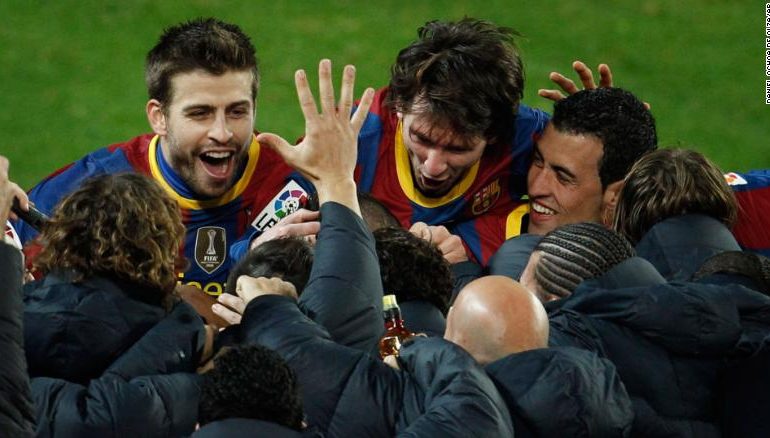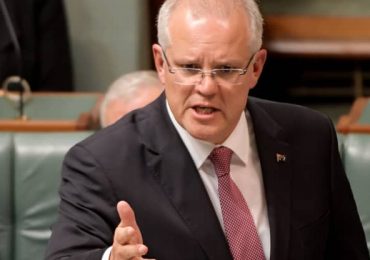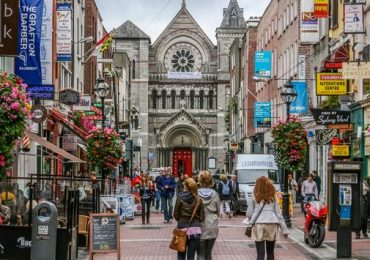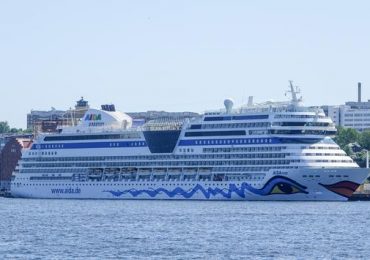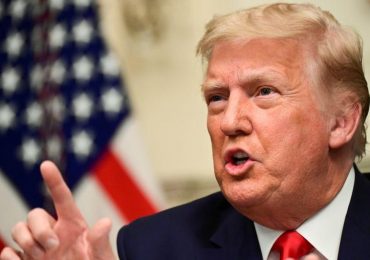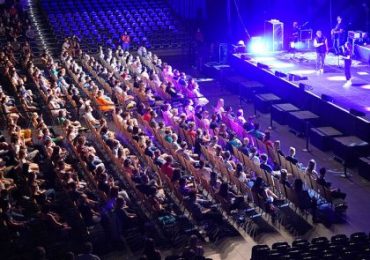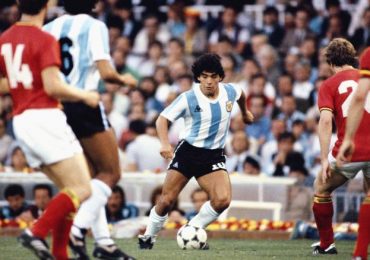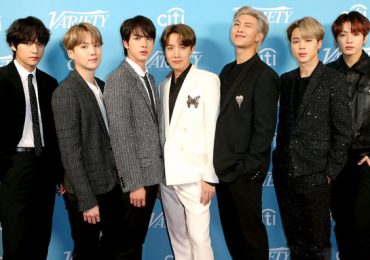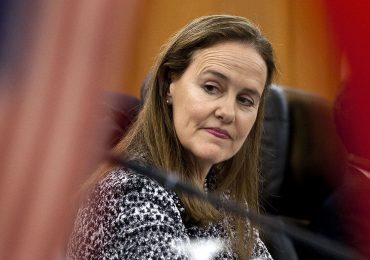As Gerard Pique broke away from the mass of Barcelona players and staff embracing each other and cheering, he looked up to the stands around him at Camp Nou. Grinning, the defender raised his right arm to the thousands of jubilant Catalans, his palm open and five fingers outstretched.
The fans responded, raising their arms, too, and giving the now memorable five-finger gesture.
On a rainy November night in Barcelona 10 years ago, Lionel Messi and co had just completed ‘Una Manita,’ literally meaning ‘a hand’ – a sensational 5-0 victory over rivals Real Madrid, in arguably that garlanded team’s greatest El Clasico performance.
The perfect game
Football journalist Graham Hunter, author of the award-winning “Barca: The Making of the Greatest Team in the World,” a book that was later used as a basis for the feature-length documentary “Take the Ball Pass the Ball,” remembers being in awe of not only the scoreline, but the manner of the victory.
He tells CNN Sport: “The first impression is shock. And second impression is realizing I am watching something I don’t think I’ve seen before between two greats.
“What hit me was a realization that Real Madrid, even until the first goal, couldn’t keep up with the pace of football. It wasn’t about the running, I’ve rarely seen the ball fizz accurately, cleverly from foot to foot like it did that night.”
Barca opened the scoring during that November 29th match in less than 10 minutes. Andres Iniesta threaded a pass to an unmarked Xavi Hernandez, who caught the ball on his heel and then chipped it over Iker Casillas in goal.
The second came after more than a minute of possession and was finished by Pedro. Seventeen minutes gone and Barca was 2-0 up.
Then came the third, a perfect through ball from Lionel Messi to David Villa, and within two minutes the fourth. In the 91st minute, Barcelona made it five and, with it, a record-equaling scoreline – the ‘manita,’ Barcelona’s biggest winning margin over Real Madrid since 1994, also a 5-0 victory, inflicted by a Johann Cruyff side packed with worldly talents such as Romario, Hristov Stoichkov and Pep Guardiola.
There was still time for Real defender Sergio Ramos to be sent off seconds after the final restart after he hacked at Messi in frustration. It was the first red card of Ramos’ career against Barcelona, but it has since become somewhat of a tradition as he’s earned another four in the intervening years.
Real Madrid didn’t play badly, the team from the capital was just overwhelmed by a side at the peak of its powers.
Books have been written about the 18-day period during April and May of the 2010-11 season in which the sides met four times. There is a case to be made that, despite the quality of Barcelona’s performance in the November El Clasico, it is overshadowed by the importance of this quartet of clashes later that season, a time of unparalleled intensity between the sides.
The war of words between Guardiola and Real boss Jose Mourinho reached its zenith. The four games produced just seven goals, but 26 yellow cards and four red cards. Former Real Madrid and Spain captain Iker Casillas recently described the period to the New York Times as “madness.”
The ‘special one’
Nevertheless, that November match in 2010 was Mourinho’s first El Clasico in charge of Real Madrid, and the first time he had faced Barcelona since his Inter Milan side defeated Guardiola’s side in the semi-finals of the Champions League earlier that year.
Infamously, having knocked out Barca, Mourinho ran across the Camp Nou pitch celebrating, his finger pointing to the Nerazzuri faithful. Barcelona goalkeeper Victor Valdes had pleaded with him to stop, but he refused.
Much hyperbole surrounded Mourinho’s subsequent move to Madrid that summer. The Portuguese was billed as the man to end Barcelona’s dominance, and some Barcelona players were irritated by the Spanish press’ obsession with his arrival.
Hunter had followed a united Spanish national team in South Africa in 2010 as the country won its first World Cup. A couple of months later, he interviewed Pique, who was angry.
“Coming away from a unified triumph where a clutch of Madrid players and an equally big clutch, maybe slightly bigger clutch, of Barcelona players or ex-Barcelona players, had tramped across South Africa with total unity,” he says. “And Gerard Pique’s point was that it p****d them off. Every press conference was Mourinho, Mourinho, Mourinho, Mourinho.
“It was getting under their skin a little bit, simply: ‘Why is the media more fascinated with Jose Mourinho than they are with us? We’ve returned to the training ground now as the dominant Spanish side at the moment, and we’ve returned as World Cup winners. And yet it’s the fabled one, it’s the man who will bring Real Madrid all they desire.'”
When Mourinho finally brought Real to the Camp Nou later that year, Barcelona gave him the best Catalan welcome it could.
Real tried to go toe-to-toe with Barcelona, but failed drastically. Usually an animated figure on the touchline, Mourinho instead sat helplessly on the bench as the latter three goals went in.
Barcelona fans chanted, “Come out of the dugout! Jose, come out of the dugout!” His grand Clasico debut had been ruined.
The cost of success
When it is said Barcelona won that match playing “their way,” it is not just about the style of play, it’s about club culture, too, and central to that is developing players through the club academy, La Masia.
The team that won that night was comprised of eight homegrown players, 10 if substitutes are included, and according to Transfermarkt, Barcelona’s starting eleven and substitutes had cost the club only €95.5m ($107.8m) in transfer fees.
Real’s team cost €300m ($357.3m), rising to €324m ($385.8m) with substitutes. Ronaldo alone had cost more than Barca’s team.
That year, the three up for the Ballon d’Or award for the world’s best footballer were Lionel Messi, Xavi and Iniesta; three Barcelona players who had graduated from La Masia.
At the time, the then Barcelona president Joan Laporta famously made a thinly-veiled jab at Real, saying: “We create Ballon d’Ors, others buy them.”
But Barcelona’s fortunes have since changed. The humiliating 8-2 loss in the quarterfinal of the last season’s Champions League to eventual champion Bayern Munich was a true testament to Barcelona’s current struggles, while Real Madrid won the most recent Clasico 3-1.
In contrast to the team of November 2010, Barcelona used only four La Masia graduates during that October game with the assembled team, including substitutes, coming at a cost of €581.9m ($694.2m).
More was spent on the high-profile individual transfers of Philippe Coutinho, Antoine Griezmann and Ousmane Dembele than on the entire team of the 2010 vintage. Three of the top six most expensive transfers transfers of all time are now Barcelona signings.
It is no secret that Barcelona is in serious financial trouble and shortly after last month’s heavy defeat to Real, Dani Alves, one of the stars of the 2010 side, voiced his anger, saying: “The club has lost its identity a bit and now has to go through a tough process to recover it.
“I think that Barca only wants to be a commercial and business club … buy and sell players. When you do that, you lose your identity.”
Striving for a future in the past
Just days after last month’s El Clasico loss, the entire board of Barcelona, including its president Josep Maria Bartomeu, resigned.
The political race to find his successor began immediately.
While frontrunner for the next Barcelona presidency, Victor Font, is by no means a populist, his desire to bring Guardiola back to the club is certainly in line with fans’ yearning for a return to the recent past.
Guardiola will not return to the club as head coach, that much he has made clear by the man himself. According to former Barcelona star and La Masia product Cesc Fabregas, former midfielder Xavi could be the man to return Barcelona to its glory years.
“Xavi will be a Barcelona coach no matter what,” he told CNN. “Maybe soon, maybe in a few years. But he will be, it’s just a matter of time.
“He’s getting ready, coaching other other leagues or the other players to learn because he just started in this profession and he’ll be fantastic. I have no doubts about it.”
Xavi is currently plying his trade in Qatar. Having left for Al Sadd in 2015, he retired from playing and immediately took over as manager.
In his first season in charge, Xavi secured victory in the Qatari Super Cup, Qatar Cup and Qatari Stars Cup, while also finishing third in the Qatari Stars League.
This season, which only began in September, the club sits first and is undefeated with five wins and one draw.
Xavi said in June, in an interview with Spanish daily ‘Sport,’ that Barcelona had approached him in January, but he had told them, “the circumstances and timing were not right.”
In the meantime, it is another former great, Ronald Koeman, who has been charged with restoring Barcelona to the upper echelons of La Liga and European football, but early results suggest the Dutchman has much work to do.
Though Barca has won all four of its Champions League group games this season, the team is currently 13th in La Liga, with 11 points from eight games, having won only one of its last five.
Fourth in the league, Real Madrid’s form has not been much better. But a win against Inter Milan on Wednesday gives the team and its manager Zinedine Zidane breathing space and, more importantly, qualification to the Champions League knockout stages.
A decade on from that never to be forgotten November night, much has changed for both teams.


